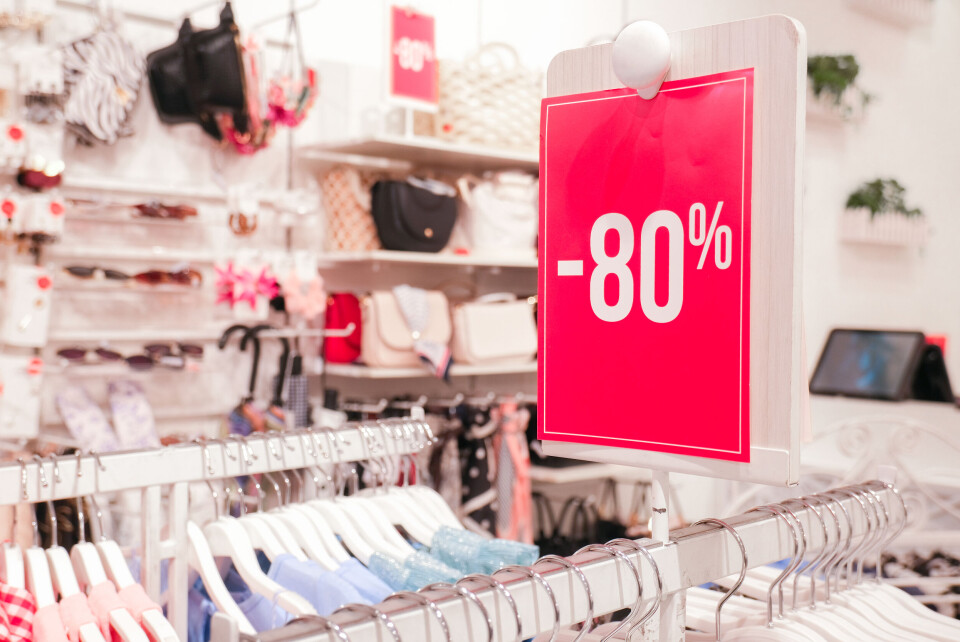-
White storks make strong return in France via nest ‘platforms’ and clipped wings
The Ligue pour la Protection des Oiseaux shares the conservation challenges in saving these birds from extinction
-
Hosting scheme in south-west France lets newcomers sample lifestyle
Households in nine Dordogne communes volunteer under Mes Nouveaux Voisins scheme
-
French boulangeries demand right for staff to work on May 1 so they can open
Artisan bakery owners can work but employees cannot, while certain industrial bakeries are allowed to remain open with workers
Summer sales start in France today amid spending power uncertainty
Tensions are emerging as shoppers either look for big discounts or spurn sales completely, while independent shopkeepers struggle to maintain margins

The official summer sales start in most of France today (June 22) but high inflation and dropping spending power are adding to a sense of uncertainty about shopping habits and whether now is a good time for the sales.
Sale dates are regulated in France and the ‘soldes d'été (official summer sales)’ are set to last until July 19, except in the Alpes-Maritimes and in Corsica where they start later. The sales are around four weeks, down from six weeks since the start of 2020.
In the Alpes-Maritimes, they will start on July 6 and end on August 2. As for Corsica, the sales are from July 13 to August 9.
Rules state that the sales must be genuine, and must be calculated based on the lowest price that an item was sold at previously. Similarly, shops cannot artificially inflate prices before sales only to cut them later to give the impression of a greater discount.
The full dates and official rules can be seen on the government website here.
However, some shoppers are hoping that the sales will be even greater than normal this year as inflation hits record levels and rising prices of food and fuel are hitting public spending power.
One woman, Nathalie, told FranceInfo in Paris: “I hope that shopkeepers will add on a little extra, and have good discounts right from the start rather than waiting for the second stage.” Another woman, Florence, said: “20% off isn’t a good sale for me. I want the 40%.”
Another shopper said: “For the children who are growing fast, such as for shoes that are expensive, I’ll be expecting something. But I’m watching the pennies more now, and I have a strategy to spend more wisely.”
Another added: “The sales are not a priority for me right now. On a daily basis, we are managing what is most important…so that means fewer [extra] purchases and more on what’s most essential.”
Emmanuel Le Roch, general delegate of Procos, which includes 310 retailers, said that two main trends are likely to emerge.
He said: “Some consumers may want to buy what they want or need at knock-down prices, anticipating that prices will be higher tomorrow. This is the most favourable scenario for sales.
“In contrast, others probably no longer have the financial resources to make extra purchases, even at low prices."
Independent shop pressure
However, inflation is hitting shopkeepers too.
A group of independent shops have joined together to send an angry open letter to the finance ministry, protesting that the sales dates are too early this year.
Similarly, the price of clothes and shoes – due to rising textile raw material costs – has increased by around 4% since May, according to statistics bureau INSEE.
Pierre Talamon, president of clothing federation la Fédération de l'habillement, which represents some 30,000 shops across France, said that independent shops will struggle to satisfy consumers looking for sizeable discounts.
He said: “If they could, independent [shops] would not go beyond a 20% price reduction.
“I think that quite a few retailers will be obliged to sell off heavily, but depending on the area, it is very unequal. The city centres, for example, are in a much more complicated situation than the outskirts or certain areas in the provinces.”
One consumer expert and author, Rémi Le Druillenec, said: “This year, perhaps more than the others, people want to find a good deal, [but] at the same time, it must remain fair [for shops].
“We have to make customers understand that there are certain sales margins... We have to talk to each other. Let the dialogue between retailers and consumers begin!”
Similarly, Yohann Petiot, director-general of the Alliance du commerce, which brings together department stores and fashion chains, said that shopkeepers will need to find a balance.
He said: "Retailers must try to give their customers a fair price, and on the other hand they must try to preserve their margins and profitability, at a time when production and transport costs are increasing and when they have to repay their state-guaranteed loan."
Related articles
Here are France's winter sales dates for 2022 (they are regulated)
























